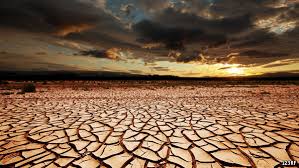
With climate change, scientists expect more crop loss primarily because of growth of insect pests, say American researchers.
This was the conclusion of a study published on Thursday in the journal Science. The research showed the manner in which insect attack three staple crops, rice, corn and wheat and how such pests would adapt to a number of climate scenarios.
The researchers found that there would be an increase in crop losses from insects because of rising global temperature particularly in the temperate regions. Such losses are projected to be increase by 10 to 25 percent for every degree Celsius of global warming.
The study claimed that if there is a rise of two degrees in the global temperature, it would cause a crop loss of approximately 213 million tons for the three crops mentioned above.
The study specifically mentioned that the median losses in crop yield would be about 46 percent for wheat, 31 percent for corn and 19 percent for rice. 62, 92 and 59 million tons, respectively would be the total annual crop losses under those conditions.
"When the temperature increases, the insects' metabolism increases so they have to eat more," said Scott Merrill from the University of Vermont, a co-author of the study.
According to Merrill, faster insect population growth rates and enhanced insect metabolism would be the primary causes of the increased loss.
The study also noted that there is an optimal temperature for the best growth of insect population. The population growth rate of insects would be slow if the environment is too cold or too hot. This means that the temperate regions would see the highest losses and the loss would be les sin the tropics.
The biggest sufferer crop, according to the study, would be wheat because it is typically cultivated in cool climates and increased temperatures will result in increased insect metabolism and a larger population of insects and enhanced survival rates during the winter time.
For corn, which is grown fairly widespread throughout the world, there would be increase in loss in some regions while a reduction in loss in some because of climate change and rising temperatures. This means that the production of the crop would be uneven.
In the case of rice however, a rise in average temperatures rise above 3 degree Celsius would actually stabilize production losses because it is primarily grown in warm tropical environments. This is because there is a growth in insect population because of increased metabolism in the pests.
"I hope our results demonstrate the importance of collecting more data on how pests will impact crop losses in a warming world," said Curtis Deutsch of the University of Washington, who co-led the study with Joshua Tewksbury, director of Future Earth at the University of Colorado, Boulder.
The countries that are expected to experience the largest increases in crop losses from insect pests include France, China and the United States, where most of the world's maize is produced.
(Source:www.xinhuanet.com)
This was the conclusion of a study published on Thursday in the journal Science. The research showed the manner in which insect attack three staple crops, rice, corn and wheat and how such pests would adapt to a number of climate scenarios.
The researchers found that there would be an increase in crop losses from insects because of rising global temperature particularly in the temperate regions. Such losses are projected to be increase by 10 to 25 percent for every degree Celsius of global warming.
The study claimed that if there is a rise of two degrees in the global temperature, it would cause a crop loss of approximately 213 million tons for the three crops mentioned above.
The study specifically mentioned that the median losses in crop yield would be about 46 percent for wheat, 31 percent for corn and 19 percent for rice. 62, 92 and 59 million tons, respectively would be the total annual crop losses under those conditions.
"When the temperature increases, the insects' metabolism increases so they have to eat more," said Scott Merrill from the University of Vermont, a co-author of the study.
According to Merrill, faster insect population growth rates and enhanced insect metabolism would be the primary causes of the increased loss.
The study also noted that there is an optimal temperature for the best growth of insect population. The population growth rate of insects would be slow if the environment is too cold or too hot. This means that the temperate regions would see the highest losses and the loss would be les sin the tropics.
The biggest sufferer crop, according to the study, would be wheat because it is typically cultivated in cool climates and increased temperatures will result in increased insect metabolism and a larger population of insects and enhanced survival rates during the winter time.
For corn, which is grown fairly widespread throughout the world, there would be increase in loss in some regions while a reduction in loss in some because of climate change and rising temperatures. This means that the production of the crop would be uneven.
In the case of rice however, a rise in average temperatures rise above 3 degree Celsius would actually stabilize production losses because it is primarily grown in warm tropical environments. This is because there is a growth in insect population because of increased metabolism in the pests.
"I hope our results demonstrate the importance of collecting more data on how pests will impact crop losses in a warming world," said Curtis Deutsch of the University of Washington, who co-led the study with Joshua Tewksbury, director of Future Earth at the University of Colorado, Boulder.
The countries that are expected to experience the largest increases in crop losses from insect pests include France, China and the United States, where most of the world's maize is produced.
(Source:www.xinhuanet.com)














